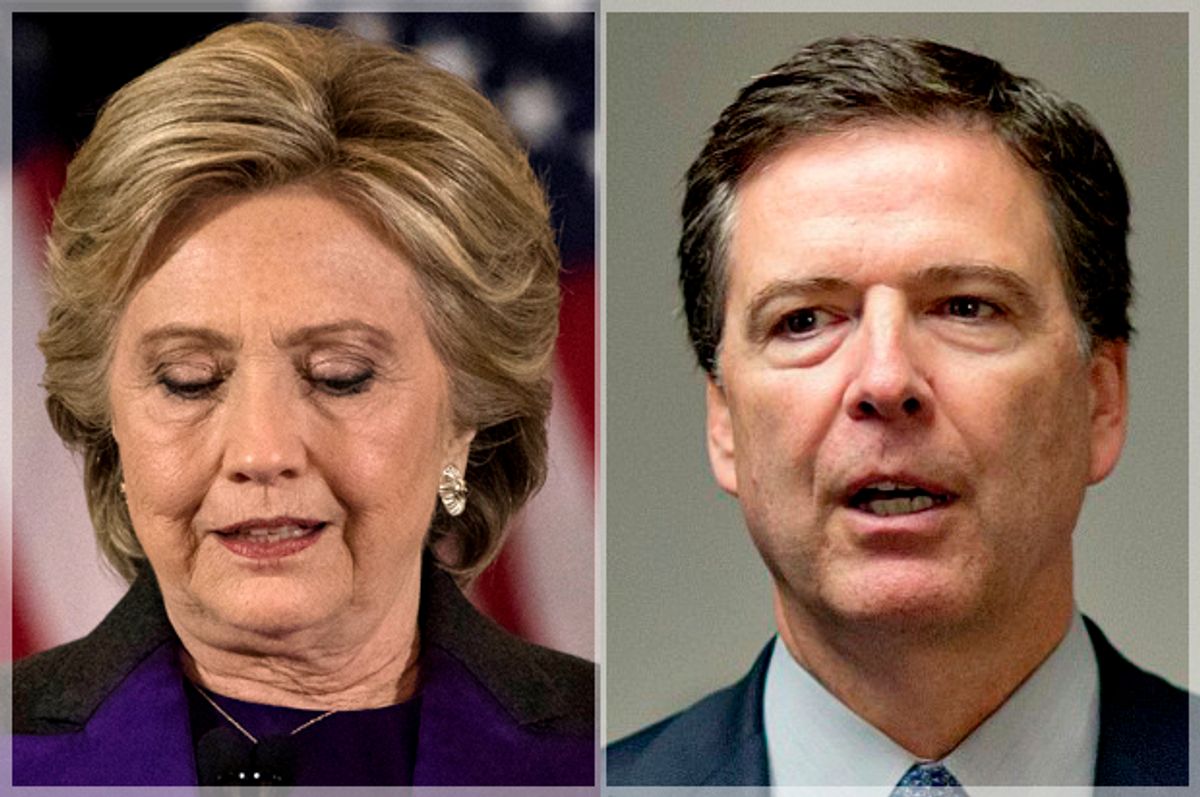In 2016, the Federal Bureau of Investigation (FBI) obtained a Russian intelligence document of uncertain origin and authenticity that cited email correspondence in which former Attorney General Loretta Lynch told a DNC staffer that the investigation into Hillary Clinton's email server would not go very far, according to the Washington Post. Now, it has been uncovered that the fictitious document, and the agency's mistaken belief that this correspondence between Lynch and a staffer was real, may have influenced former FBI Director James Comey's decisions surrounding the investigation into Clinton's private email server.
On July 5, 2016, Comey announced, without notifying the Justice Department, that the FBI was closing the investigation in Clinton's emails and that there would be no prosecutions. Comey's decision not to involve the Justice Department may have arisen from fear that, were the fictitious document to leak, it might hint at croneyism in the eyes of the public.
[salon_video id="14771369"]
The Post reported:
Current and former officials have said that document played a significant role in the July decision by then-FBI Director James B. Comey to announce on his own, without Justice Department involvement, that the investigation was over. That public announcement — in which he criticized Clinton and made extensive comments about the evidence — set in motion a chain of other FBI moves that Democrats now say helped Trump win the presidential election.
But according to the FBI’s own assessment, the document was bad intelligence — and according to people familiar with its contents, possibly even a fake sent to confuse the bureau. The Americans mentioned in the Russian document insist they do not know each other, do not speak to each other and never had any conversations remotely like the ones described in the document. Investigators have long doubted its veracity, and by August the FBI had concluded it was unreliable.
The document did not include the actual email from Lynch and only described the contents, but many within the FBI believed it to be entirely fake, or bad intelligence. Officials have argued that the document validated Comey's decision to announce "the findings of the Clinton investigation himself without Justice Department involvement," according to the Post.
"It was a very powerful factor in the decision to go forward in July with the statement that there shouldn’t be a prosecution," a source close to the matter told the Post. "The point is that the bureau picked up hacked material that hadn’t been dumped by the bad guys [the Russians] involving Lynch. And that would have pulled the rug out of any authoritative announcement."
But others who are familiar with the document staunchly disagree. "It didn’t mean anything to the investigation until after [senior FBI officials] had to defend themselves," a source told the Post. "Then they decided it was important. But it’s junk, and they already knew that."
The agency searched for the email in question, to no avail. In an interview with Lynch on the matter, she could not recall communicating anything of the sort. Nonetheless, the document certainly impacted Comey's future actions because "he feared that if Lynch announced no charges against Clinton, and then the secret document leaked, the legitimacy of the entire case would be questioned," according to the Post.



Shares